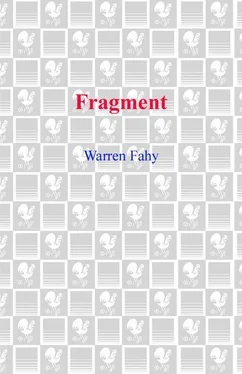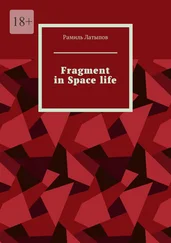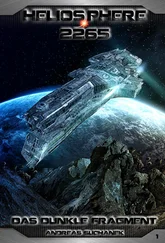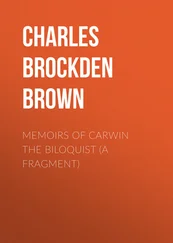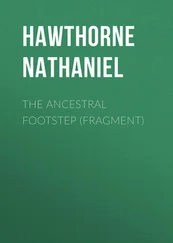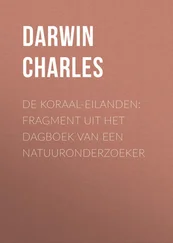Warren Fahy - Fragment
Здесь есть возможность читать онлайн «Warren Fahy - Fragment» — ознакомительный отрывок электронной книги совершенно бесплатно, а после прочтения отрывка купить полную версию. В некоторых случаях можно слушать аудио, скачать через торрент в формате fb2 и присутствует краткое содержание. Жанр: Путешествия и география, на английском языке. Описание произведения, (предисловие) а так же отзывы посетителей доступны на портале библиотеки ЛибКат.
- Название:Fragment
- Автор:
- Жанр:
- Год:неизвестен
- ISBN:нет данных
- Рейтинг книги:5 / 5. Голосов: 1
-
Избранное:Добавить в избранное
- Отзывы:
-
Ваша оценка:
- 100
- 1
- 2
- 3
- 4
- 5
Fragment: краткое содержание, описание и аннотация
Предлагаем к чтению аннотацию, описание, краткое содержание или предисловие (зависит от того, что написал сам автор книги «Fragment»). Если вы не нашли необходимую информацию о книге — напишите в комментариях, мы постараемся отыскать её.
Fragment — читать онлайн ознакомительный отрывок
Ниже представлен текст книги, разбитый по страницам. Система сохранения места последней прочитанной страницы, позволяет с удобством читать онлайн бесплатно книгу «Fragment», без необходимости каждый раз заново искать на чём Вы остановились. Поставьте закладку, и сможете в любой момент перейти на страницу, на которой закончили чтение.
Интервал:
Закладка:
“That is the general assumption,” Geoffrey replied cheerfully. “But everyone concedes that very little is known about the details. I’m sure you’re aware of Haeckel’s theory, Dr. Stoever?”
“Ontogeny recapitulates phylogeny, of course-everyone is aware of Haeckel’s theory, Geoffrey.”
There was a smattering of laughter at this and Geoffrey raised his hand to the audience. “Well, just to remind everyone, for a long time scientists observed that during certain phases of development the human embryo looks remarkably like a tadpole, with a tail and gills, and continues to go through other stages that appear to be entirely different animals. What Haeckel proposed is that embryonic development is actually a recapitulation of an animal’s evolutionary past.”
“Haeckel’s theory has been discredited,” yelled one scientist from the back row.
“It only applies to the development of embryos, anyway,” protested another. “Not to sperm and ova!”
“Ah.” Geoffrey nodded. “Why not? Think outside the box, Dr. Mosashvili. And Haeckel is far from being discredited, Dr. Newsom. In fact, this proposition, if it proves correct, might well be his final vindication.”
“You can’t claim sperm and egg are merely echoes of the first eukaryotic cells,” shouted another irate scientist.
“Why not?” Geoffrey volleyed.
“Because sperm and egg are unlike any other organism. They carry only half the chromosomes!”
“Which they combine to produce the next stage of their development,” Geoffrey returned, “which, I propose, may be the carrier stage, if you will-which naturally became more and more specialized to reach new environments. The fact that sperm and egg carry only half the chromosomes of their offspring could be a further effect of specialization to symbiotic reproduction, or it could be proof that sex began with separate organisms that combined and doubled the amount of their chromosomes to make sexually differentiated carriers of each original cell. I submit that Haeckel’s principle is not only right, but may not have been taken far enough.”
“But originating as a predator/prey relationship…I don’t buy it.” Dr. Stoever was scowling.
“Look at bees and flowers,” Geoffrey replied. “When insects invaded the land, they devoured plant life. But plants adapted to the invasion. They turned insects into agents of their own reproduction by offering nectar in flowers and seeds in fruit. Examples abound of predator/prey relationships becoming symbiotic relationships, even reproductive relationships. Every one of us is a colony of cooperative organisms, millions of which inhabit our intestinal tract, graze on our epidermises, and devour bacteria scraped by our eyelids off our eyeballs between the columns of our eyelashes. All of these creatures had to have begun as predators but then adapted in cooperation with our bodies so as not to destroy their own homes, and in fact to help their hosts survive and flourish. Without the vast horde of creatures that inhabit us, we would die. We could not have evolved without them, nor they without us. Instead of a perpetual war, I believe this treaty of cooperation is the true theme of life, the very essence of a viable ecosystem. Instead of the stalemate of a war, which many believe the natural world reflects, perhaps evolution is always working toward stability, peace treaties, the mutual benefit of alliances. And its central building block is the treaty between the first single-celled predator and its prey: sex. That peace treaty had to be struck before the relentless violence of predator and prey inevitably selected both for extinction, which probably happened many times.”
“The development of sex in eukaryotic cells is still a mystery,” grunted another grizzled scientist. He shook his white-haired head emphatically.
“Maybe the answer to the mystery has been too obvious for us to see, Dr. Kuroshima,” Geoffrey replied. “Maybe the explanation has been right under our noses all along, or, at least, under our kilts. Perhaps we’ve just been too shy to look?”
A wave of grumbles, hoots, and whistles greeted this flourish, and the eighty-year-old Japanese scientist scoffed benignly, holding a hearing aid to his head with one hand and waving the other at Geoffrey, for whom he had great affection, despite and probably because of the younger man’s tendency to stir things up.
One pretty student intern in the audience raised her hand.
“Yes?”
“Dr. Binswanger, can I ask a question on a different topic?”
“Of course. There are no rules except that there are no rules at Fire-Breathing Chats.”
The audience seconded this with some enthusiastic applause.
“Your expertise lies in the geo-evolutionary study of island ecosystems,” the young woman recited. She’d clearly memorized her program of summer speakers. “Did I get that right?” She laughed nervously, inspiring some sympathetic laughter in the feisty crowd.
“Well, I’ve touched on pattern analysis in nature, and in biological communication systems in particular,” Geoffrey agreed, “but genetic drift and island formation is my current project here at Woods Hole, where I’m overseeing a study of insular endemic life on Madagascar and the Seychelles in a geo-evolutionary context. So, I guess you could say yes !”
There was a scattering of academic chuckles, and Angel Echevarria rolled his eyes; the girl was quite good-looking and Geoffrey had totally blown it, again.
“So… Did you see SeaLife?” she asked.
This released a unanimous eruption of laughter.
“By the way, you’ve got great legs,” she added.
Geoffrey nodded at the ensuing howls and gave a Rockette kick.
Geoffrey thought about Angel’s video of the reality show. The blue blood had continued to bother him. The blurred images of the plants looked strange but not ridiculous-in fact, rather more subtle than he imagined a TV show could manage. But it wasn’t enough for him.
He shook his head, stalemated. “Given what is known about isolation events and the duration of micro-ecologies-and given what they can do in Hollywood movies these days-I’m going to have to assume that island’s a hoax, like Nessie and Bigfoot.”
Boos and cheers divided the room.
“Sorry, folks!”
“But wouldn’t you have to see it firsthand to be sure, Dr. Binswanger?” the attractive intern called.
Geoffrey smiled. “Sure. That’s the only way I’d feel comfortable commenting on it definitively. But I don’t think they’ll be asking any experts to take a closer look. It’s a perfect place to pull off a scam, if you think about it. It’s about as remote a location as you could possibly find. It’s not like anyone can just go there and check it out for themselves. That makes me suspicious, and since I’m already skeptical, the combination is deadly, I’m afraid. Yes, uh, you there, with the beard, in the back…”
Angel winced, closing his eyes sadly. Geoffrey had no idea that his own dismal ineptitude in pursuing sexual opportunities was the best evidence against his theory that sex cells created more complex animals to perpetuate themselves: if the end product was Geoffrey, Angel thought, total extinction was inevitable.
SEPTEMBER 3
2:30 P.M.
About 1,400 miles south-southeastof Pitcairn Island, the two-mile-wide speck of rock was too inconsequential to be marked on most globes, maps, and charts. That speck was now surrounded by the U.S.S. Enterprise , the U.S.S. Gettysburg , the U.S.S. Philippine Sea , two destroyers, three guided-missile destroyers, a guided-missile frigate, one logistics ship, two Sea Wolf anti-sub attack subs, two submarine tenders, and three replenishment vessels. The Enterprise Joint Task Group had been en route to the Sea of Japan when the President gave orders to blockade the tiny island. In the middle of the biggest expanse of nowhere on Earth, a floating city of over 13,000 men and women had suddenly materialized three days after the final broadcast of SeaLife.
Читать дальшеИнтервал:
Закладка:
Похожие книги на «Fragment»
Представляем Вашему вниманию похожие книги на «Fragment» списком для выбора. Мы отобрали схожую по названию и смыслу литературу в надежде предоставить читателям больше вариантов отыскать новые, интересные, ещё непрочитанные произведения.
Обсуждение, отзывы о книге «Fragment» и просто собственные мнения читателей. Оставьте ваши комментарии, напишите, что Вы думаете о произведении, его смысле или главных героях. Укажите что конкретно понравилось, а что нет, и почему Вы так считаете.
